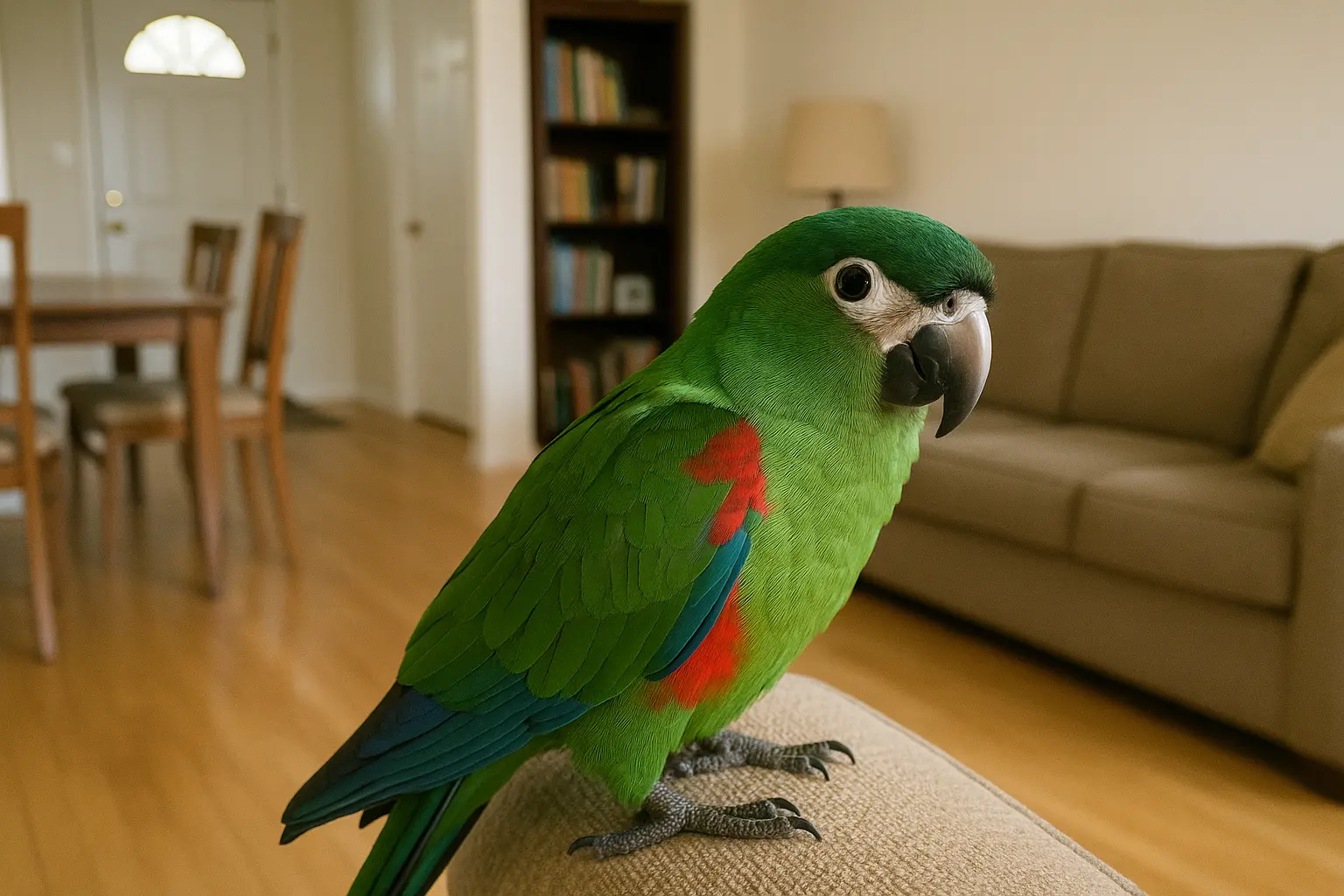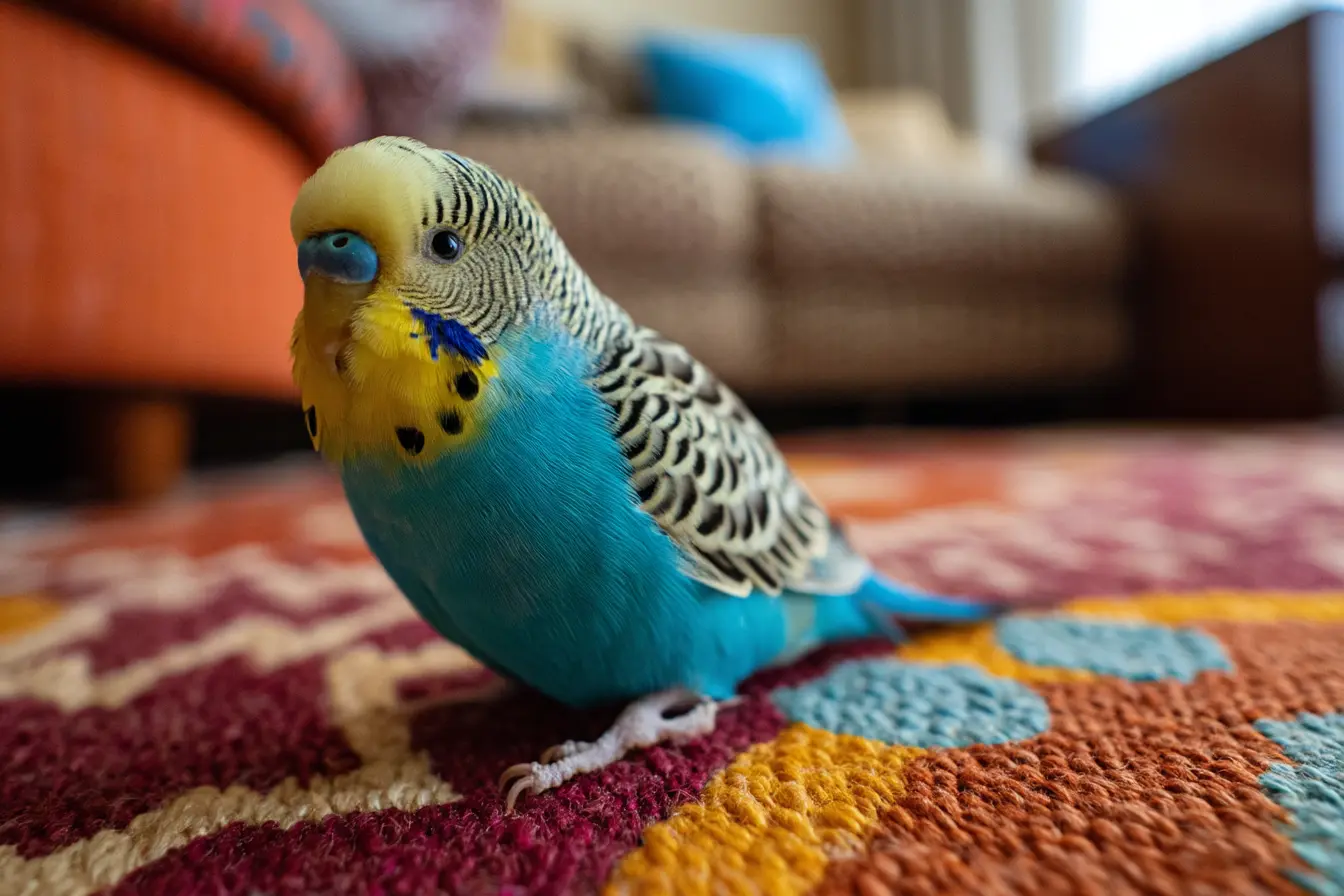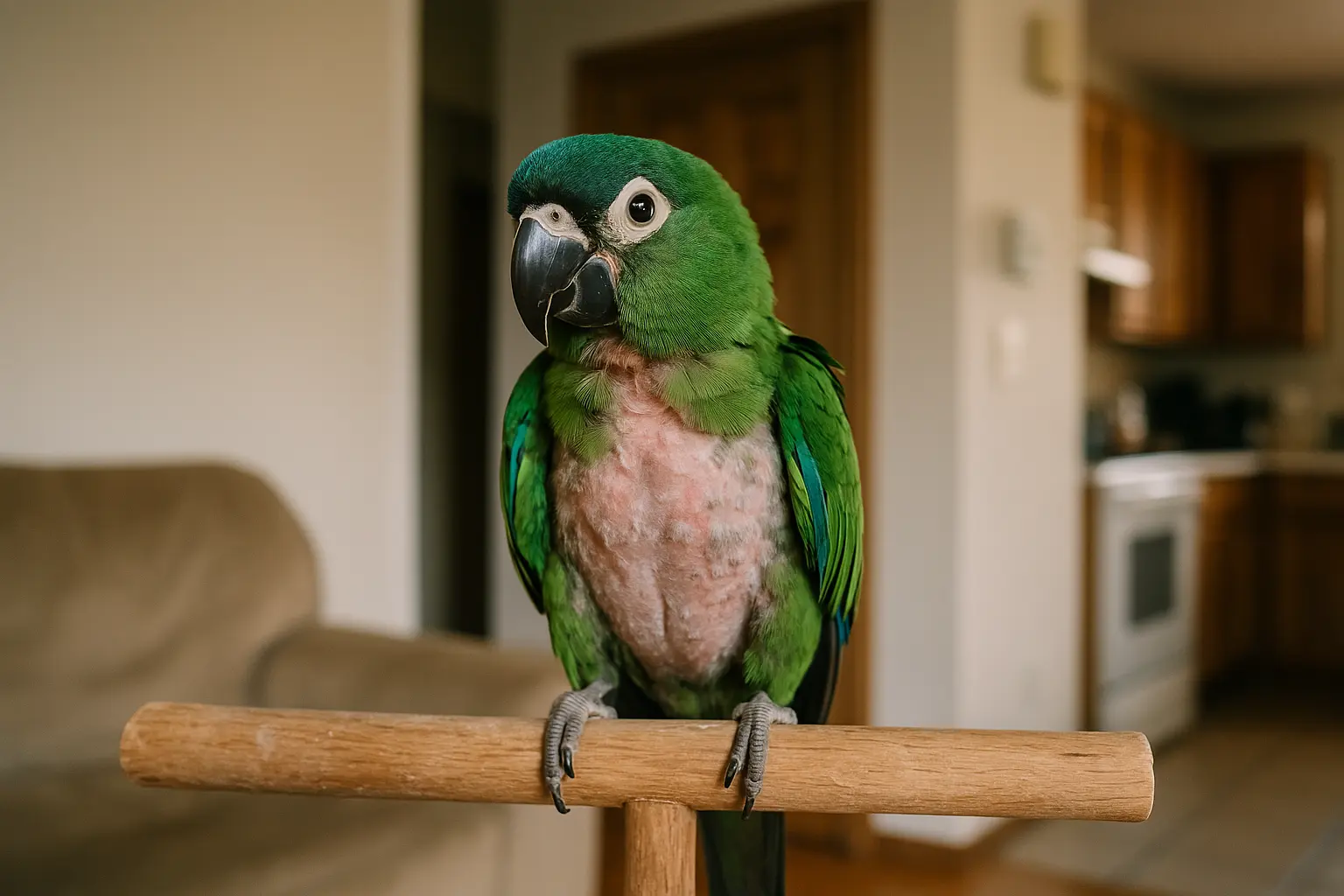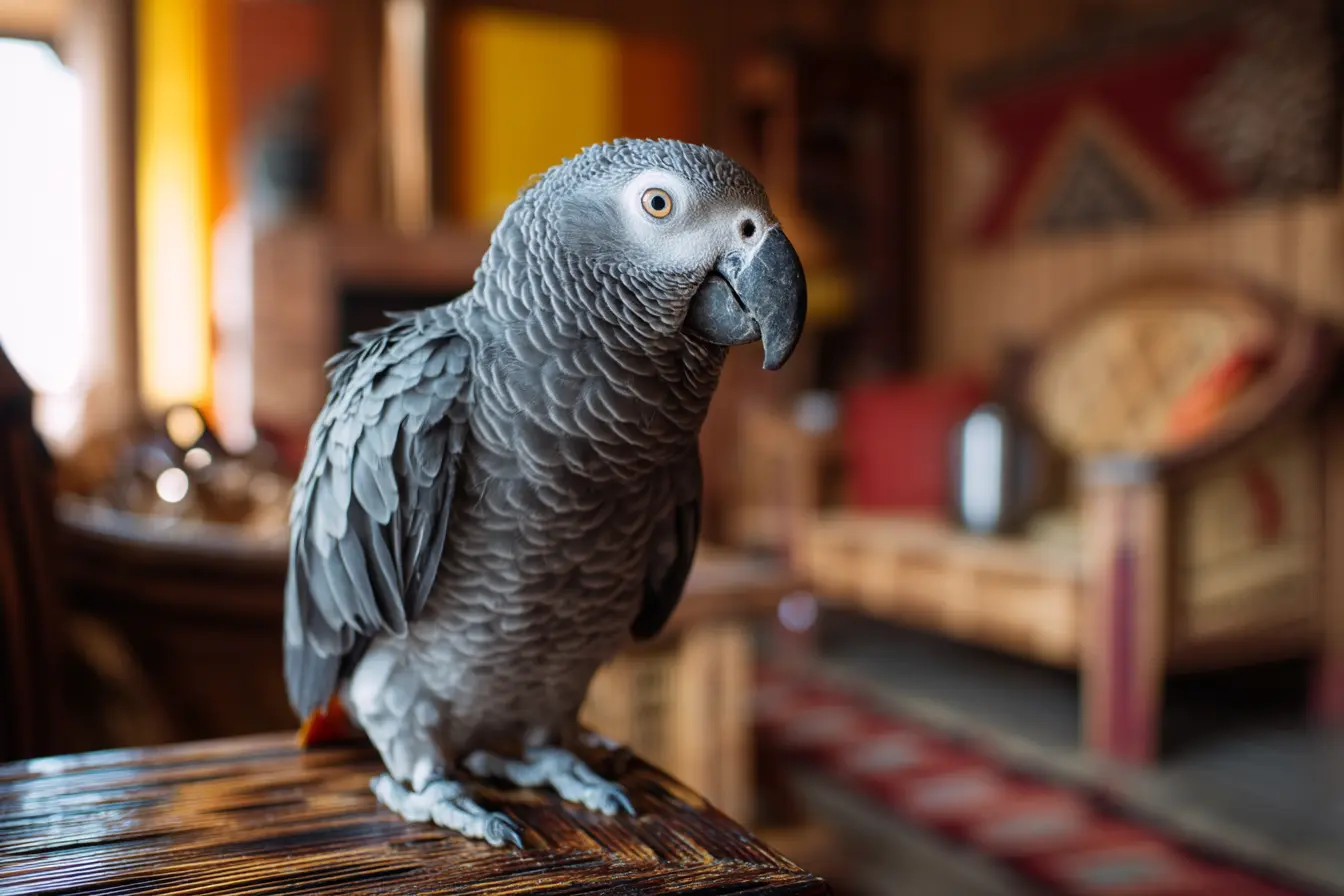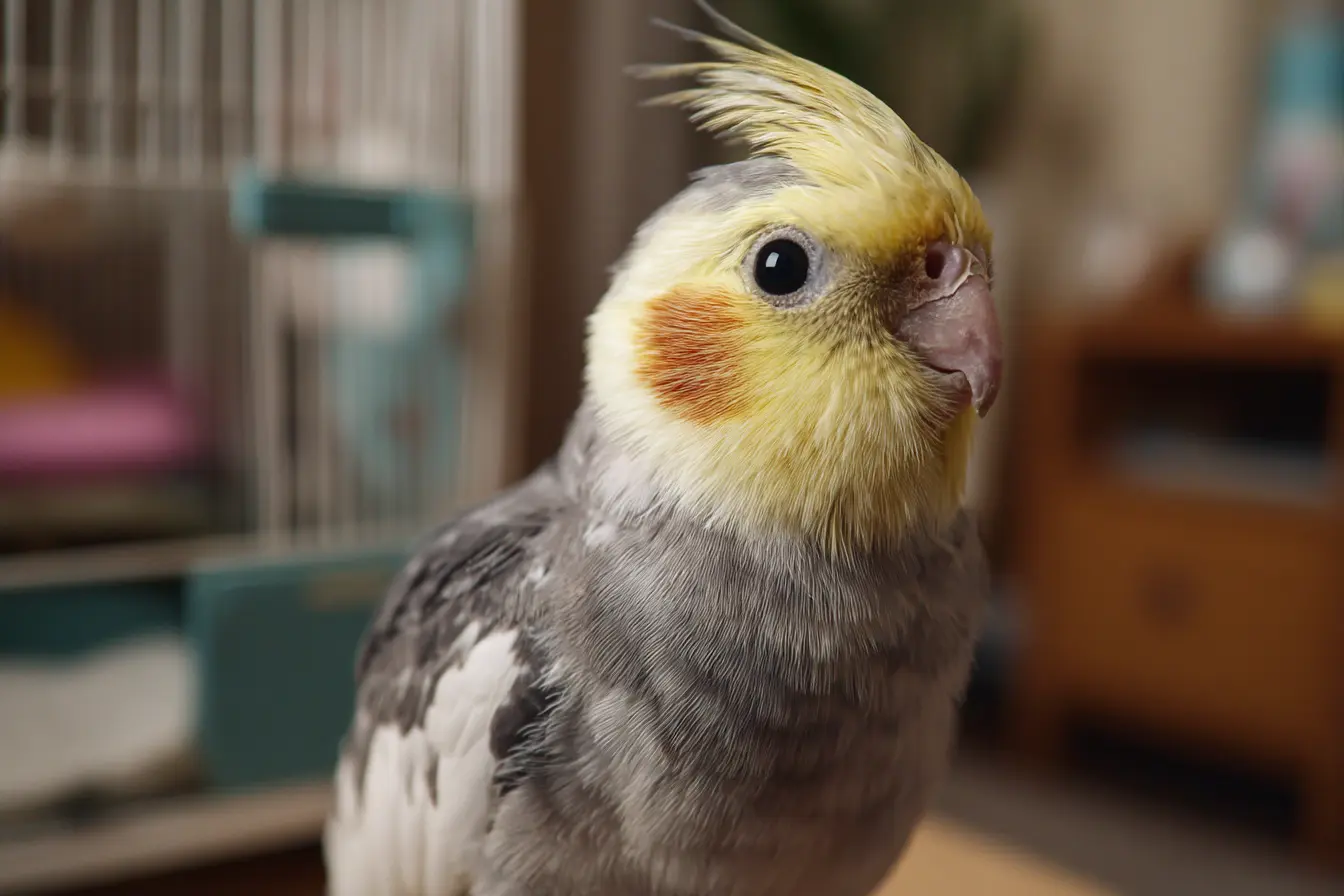
Avian Gastric Yeast in Pet Birds
Avian Gastric Yeast (AGY), formerly known as Megabacteriosis, is a chronic digestive disease that affects pet birds, particularly budgerigars, canaries, finches, cockatiels, and parrots. The condition is caused by Macrorhabdus ornithogaster, an organism that behaves like both a yeast and a bacterium, making it challenging to diagnose and treat.
What Is Avian Gastric Yeast?
AGY is a fungal infection that primarily affects the proventriculus, the glandular stomach of birds. It interferes with digestion by damaging the stomach lining, leading to weight loss, malnutrition, and, in severe cases, death. The disease is often chronic, with birds appearing healthy for weeks or months before showing symptoms.
Symptoms of Avian Gastric Yeast
The clinical signs of AGY can be subtle at first but worsen over time. Common symptoms include:
- Weight loss despite a normal or increased appetite
- Regurgitation or vomiting
- Undigested seeds in droppings
- Chronic diarrhoea or loose stools
- Lethargy and weakness
- Ruffled feathers
- Crop stasis (delayed emptying of food in the crop)
In the later stages, birds become emaciated, have difficulty perching, and may experience severe digestive distress. Some birds may suddenly deteriorate without prior warning.
How Is Avian Gastric Yeast Transmitted?
AGY spreads through direct or indirect contact with infected birds, their droppings, or contaminated food and water. The infection can persist in an aviary or household for long periods, making biosecurity essential.
Risk factors include:
- Overcrowding in aviaries or cages
- Poor hygiene, allowing fungal spores to accumulate
- Weakened immune systems due to stress, malnutrition, or concurrent infections
- Frequent introduction of new birds without quarantine
Young birds and those under stress (such as breeding or moulting) are particularly vulnerable.
Diagnosing Avian Gastric Yeast
Diagnosing AGY requires laboratory testing, as symptoms can resemble other digestive disorders. A vet may perform:
- Microscopic examination of droppings – AGY organisms appear as rod-shaped yeast cells
- Crop or faecal swabs – Stained smears may reveal fungal structures
- PCR testing – Confirms the presence of Macrorhabdus ornithogaster
- Endoscopy or radiographs – In severe cases, an enlarged or inflamed proventriculus may be visible
Because AGY can be shed intermittently, multiple tests may be needed for an accurate diagnosis.
The Importance of a Specialist Avian Vet
AGY can be challenging to diagnose and treat effectively, which is why consulting a specialist avian vet is essential. Unlike general veterinarians, avian specialists have advanced training in bird medicine and are equipped with the necessary knowledge and diagnostic tools to handle complex avian diseases.
Why Choose an Avian Specialist?
- Accurate Diagnosis – Many bird illnesses share similar symptoms. A specialist avian vet can conduct the appropriate tests.
- Specialised Treatment Plans – Birds metabolise medications differently from mammals, and incorrect dosages can be harmful. Avian vets prescribe precise antibiotic regimens that ensure effective treatment while minimising risks.
- Preventative Care – Routine check-ups with an avian vet help detect early signs of health issues before they become severe.
- Expert Advice on Husbandry – A specialist can provide guidance on diet, cage hygiene, and environmental enrichment to reduce the risk of stress-induced infections.
When to See an Avian Vet
You should take your bird to a specialist avian vet immediately if you notice:
- Respiratory distress or laboured breathing
- Sudden weight loss or lethargy
- Green or yellow diarrhoea
- Unexplained feather fluffing or inactivity
Even if your bird appears healthy, scheduling annual wellness exams with an avian vet is a proactive way to detect hidden infections and maintain optimal health.
Treatment Options for Avian Gastric Yeast
There is no single guaranteed cure for AGY, but antifungal medications can help manage the infection. Treatment typically involves:
- Amphotericin B (the most effective antifungal) administered orally over several weeks
- Nystatin, sometimes used, but less effective than Amphotericin B
- Supportive care, including a high-nutrition diet and probiotics to aid digestion
- Elimination of stressors, ensuring a stable, clean environment
Some birds may recover fully with treatment, while others require ongoing management to prevent relapses.
Preventing Avian Gastric Yeast
Prevention is crucial to reducing the risk of AGY, especially in multi-bird households. Steps include:
- Strict hygiene practices – Regularly clean cages, perches, and food dishes
- Quarantine new birds for at least 30 days before introducing them to an existing flock
- Provide a balanced diet – Avoid excessive sugary foods that promote yeast growth
- Reduce stress by minimising environmental changes and overcrowding
- Regular vet check-ups to monitor for early signs of infection
Is Avian Gastric Yeast Contagious to Humans?
AGY is not considered zoonotic, meaning it does not pose a risk to humans. However, good hygiene should always be practised when handling birds and cleaning cages to prevent the spread of other potential pathogens.
Final Thoughts
Avian Gastric Yeast is a serious condition that requires prompt diagnosis and long-term management. While some birds recover with treatment, others may experience recurring episodes. The key to prevention lies in maintaining good hygiene, minimising stress, and ensuring a well-balanced diet.
If you suspect your bird has AGY, consult an avian vet as soon as possible to begin appropriate testing and treatment. With proper care, affected birds can lead healthier lives despite the challenges posed by this chronic infection.
Contents
- What Is Avian Gastric Yeast?
- Symptoms of Avian Gastric Yeast
- How Is Avian Gastric Yeast Transmitted?
- Diagnosing Avian Gastric Yeast
- The Importance of a Specialist Avian Vet
- Treatment Options for Avian Gastric Yeast
- Preventing Avian Gastric Yeast
- Is Avian Gastric Yeast Contagious to Humans?
- Final Thoughts
Tags
Vets near you
Speciality vets
- Aquatics vet specialists
- Birds vet specialists
- Camelids vet specialists
- Cats vet specialists
- Cattle vet specialists
- Deer vet specialists
- Dogs vet specialists
- Equines vet specialists
- Exotic vet specialists
- Goats vet specialists
- Pigs vet specialists
- Poultry vet specialists
- Sheep vet specialists
- Small Mammals vet specialists
- Wild vet specialists
Vet facilities
- Accessible by public transport
- Blood testing
- Car park nearby
- Client car park
- Dentistry
- Diagnostic imaging
- Disabled public access
- Flea and worm treatments
- Microchipping
- Mobile services
- Neutering
- Open at weekends
- Out-of-hours service
- Referral interests
- Referrals only
- Street parking outside
- Toilets available
- Vaccination clinic
